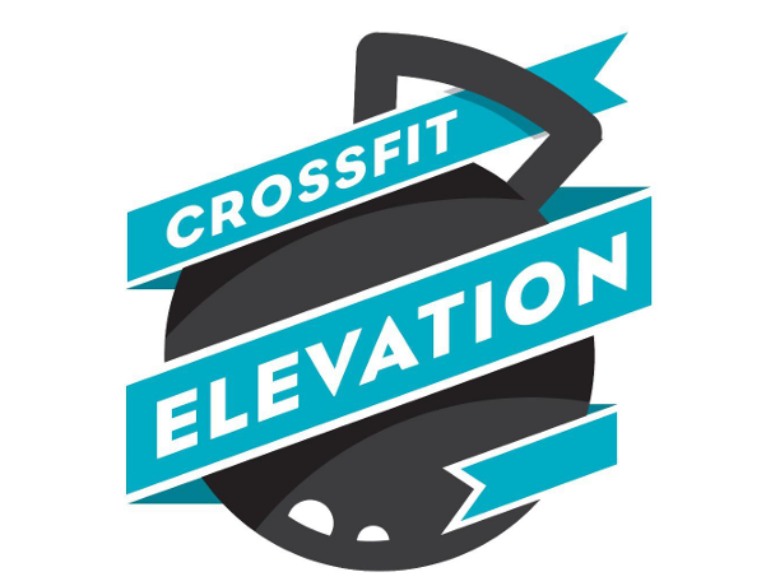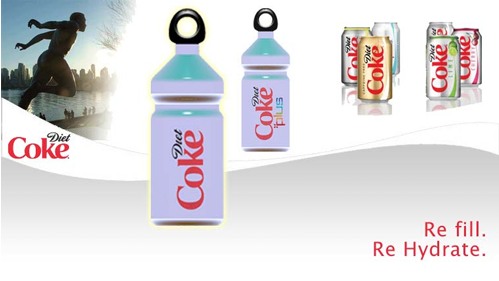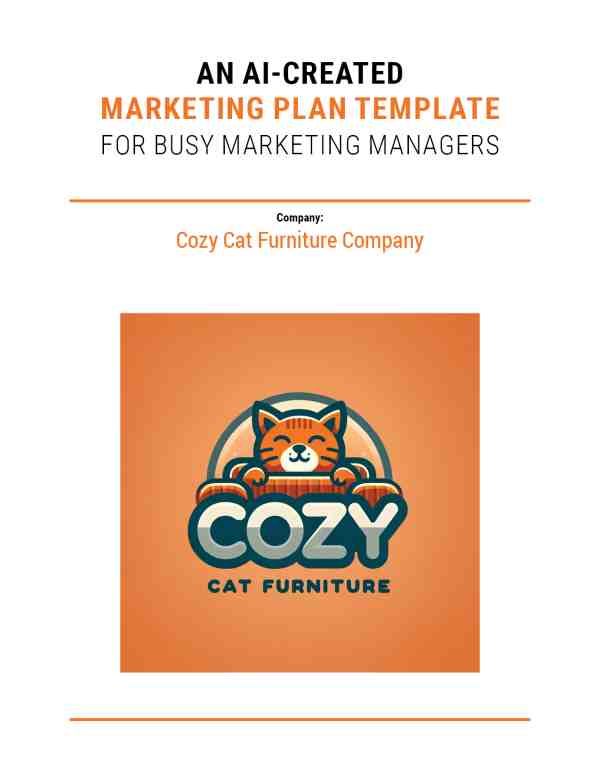How to Write a Marketing Plan: Examples and Prompts

Creating a great marketing plan has never been easier! In this guide, we’ll share our best practices for creating marketing plans, and our AI Marketing Plan Generator will help you draft your own, instantly and free.
How to Use our Marketing Plan Generator
Just answer a few questions and our AI-powered assistant will generate a draft marketing plan. As you answer more questions about your company or product, your marketing plan will get better and better.
AI Prompts for Your Marketing Plan
Once you’ve drafted your marketing plan above, here are additional prompts to help you polish and perfect it:
1. To improve tone and style: “Rewrite this as more formal/playful/professional/engaging/convincing/authoritative.”
2. To enhance the headline: “Craft a captivating headline that grabs attention and conveys the key message.”
3. For audience targeting: “Suggest specific demographics or segments we should focus on and tailor our messaging accordingly.”
4. To optimize your call to action (CTA): “Generate a compelling CTA that encourages immediate engagement or conversion.”
5. For content format suggestions: “Recommend the most effective content format (e.g., video, infographic, blog post) for conveying this information.”
6. To improve emotional appeal: “Inject emotional elements into the copy to elicit a stronger response from the audience.”
7. For USP refinement: “Help us articulate a unique selling proposition that sets our product/service apart from competitors.”
8. For benefit emphasis: “Highlight the key benefits or advantages of our offering to maximize its appeal.”
9. For Social media strategy: “Provide ideas for creating engaging social media content and increasing reach and engagement.”
10. To generate ad campaign concepts: “Brainstorm a creative concept for an advertising campaign that aligns with our brand identity and goals.”
Examples of Great Marketing Plans
Crossfit Elevation
CrossFit Elevation’s marketing plan is effective because it creates a strong brand identity, utilizes targeted marketing strategies, and emphasizes quality control to retain customers. It demonstrates an understanding of the competitive landscape and uses data to adapt and improve.
This marketing plan wins by building a strong community, emphasizing unique selling points, and smartly approaching location, pricing, and promotion. It tracks results and focuses on quality to keep customers happy. It’s also well positioned to benefit from growing interest in health and fitness.
The Creative Café

The Creative Cafe’s marketing plan demonstrates a strong understanding of its target audience, competitive landscape, and the importance of creating a unique and socially responsible brand image. It’s well-structured and highlights several key strengths that position the business for success.
They plan to use various promotional channels, such as advertising, public relations, and social media, to reach their target audience effectively. This will create a consistent brand message across different touchpoints. Their commitment to donating to local charities demonstrates social responsibility and can build brand loyalty within the Charlottetown community.
Coca-Cola Marketing Plan
This older, fictional Coca-Cola marketing plan targets a growing health-conscious market with a refillable bottle of Diet Coke. It positions Coca-Cola as sustainable and eco-friendly. The plan uses Coca-Cola’s strong brand image and existing sports sponsorships to associate the product with health and fitness.
It also addresses social responsibility concerns and utilizes a mix of marketing channels to reach the target audience. The plan creates a positive brand story by portraying the new packaging as essential for an active lifestyle. This strategy positions Coca-Cola well within the health and sustainability trend.
AI-Generated Marketing Plan Example
Today, the best marketing plans emerge from a combination of deep human expertise and creativity, coupled with the power and knowledge of AI. Here’s a sample plan generated with our Media Shower AI platform:
10 Best Practices for Marketing Plans
The best marketing plans in modern business emerge from a combination of deep human expertise and creativity coupled with the power and knowledge of AI.
Some best practices you can implement today using this combination of tools include:
- Clearly define goals: Establish specific, measurable, attainable, relevant, and time-bound (SMART) objectives for your marketing plan.
- Conduct thorough market research: Gain insights into your target audience, competitors, and industry trends to inform your strategy.
- Segment and target effectively: Identify distinct customer segments and tailor your marketing efforts to address each segment’s unique needs and preferences.
- Develop a compelling value proposition: Clearly articulate your product or service’s unique value to differentiate it (and you) from your competitors.
- Create a comprehensive content strategy: Plan and produce high-quality content that resonates with your target audience at every stage of their buyer journey.
- Leverage data and analytics: Utilize data-driven insights to measure and optimize your marketing performance, allowing for data-backed decision-making.
- Embrace multi-channel marketing: Reach your audience through various channels (e.g., social media, email, search engines) to maximize your brand’s exposure and engagement.
- Build strong customer relationships: Cultivate ongoing engagement and loyalty by delivering exceptional customer experiences and personalized interactions.
- Test and iterate: Continuously experiment with different marketing tactics, measuring their impact, and refine your approach based on the results.
- Stay abreast of industry trends: Keep up with the latest advancements, emerging technologies, and changing consumer behaviors and adapt your marketing strategy accordingly to stay ahead of the competition.
Enhance your marketing materials with Media Shower – Click here to discover how our award-winning team can take your marketing plan to the next level.

Frequently Asked Questions (FAQs) About Marketing Plans
Still have questions about how to create the best marketing plan you can for your business? Take a look at these frequently asked questions and see if your query has already been answered.
What is a marketing plan, and why is it important?
How do I create an effective marketing plan?
What should be included in a marketing plan?
How can I identify my target audience for the marketing plan?
What are some effective marketing strategies to consider?
How often should I update my marketing plan?
How do I measure the success of my marketing plan?
How do I allocate my marketing budget effectively?
What are some common marketing plan pitfalls to avoid?
How can I ensure collaboration and alignment across teams for the marketing plan?
Once you’ve drafted your marketing plan, Media Shower is here to help you put it into action. Click here to get started.





